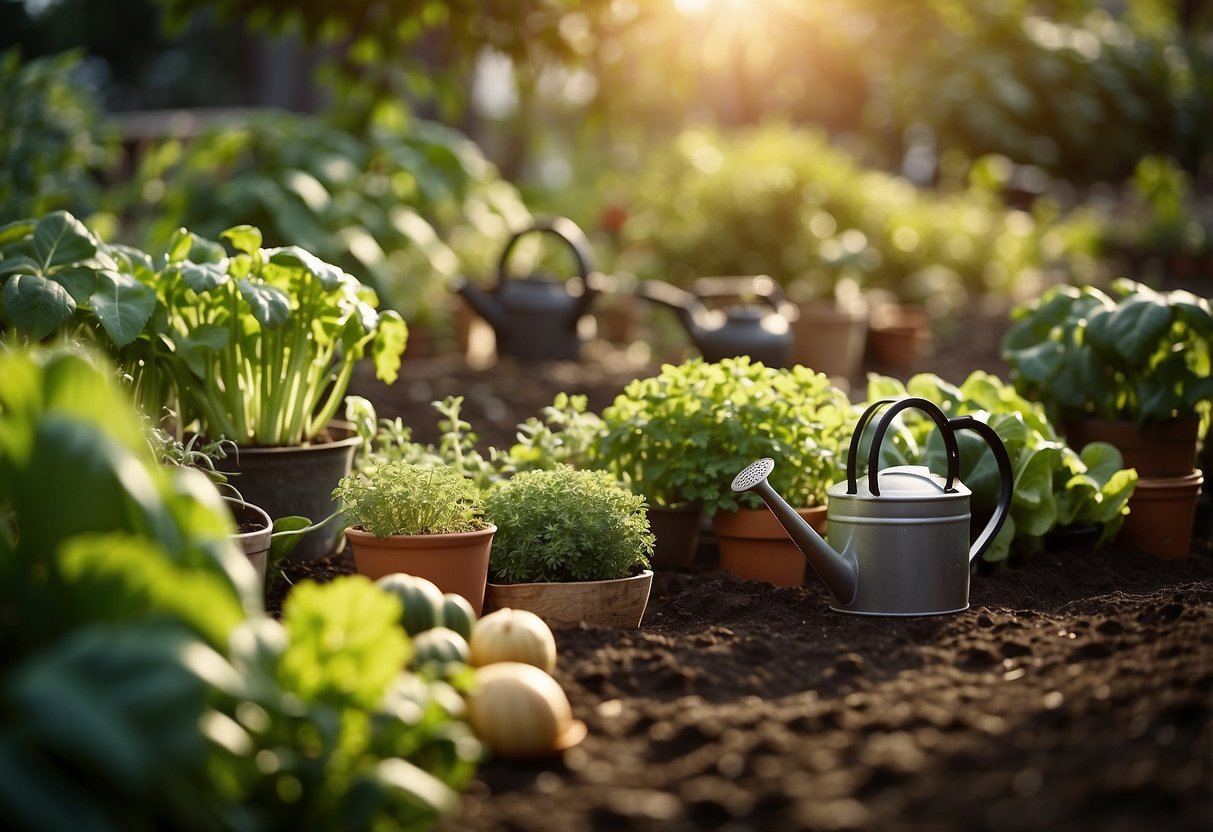
6. Implement Crop Rotation

Implementing crop rotation is crucial for maintaining a healthy vegetable garden. This practice involves moving crops to different spots each season to prevent soil depletion and minimize pest and disease problems.
By rotating crops, gardeners can disrupt the life cycles of harmful pests that thrive on specific plants. This reduction in pest populations can lead to healthier plants and higher yields.
Crop rotation also helps to balance the nutrient levels in the soil. Different plants have varying nutrient requirements, so rotating them ensures that no single nutrient is overly depleted. For example, planting nitrogen-fixing legumes after heavy feeders like tomatoes replenishes the soil.
A simple way to implement crop rotation is by dividing your garden into sections and planning a multi-year rotation schedule. Group plants with similar nutrient needs and avoid planting the same family of vegetables in the same spot for at least three years.
Overall, crop rotation is a sustainable practice that promotes soil health and garden productivity. Gardeners can enjoy bountiful harvests and a thriving vegetable garden by following these principles.
7. Water Consistently

Watering consistently is crucial for the health of your vegetable garden. Aim to provide your plants with at least an inch of water per week. This can be achieved through rain, manual watering, or an irrigation system.
When watering, direct the water to the base of the plants. This helps keep the foliage dry and reduces the risk of fungal diseases. Avoid wetting the leaves as much as possible, especially in the evening, to prevent mildew and other issues.
Different plants may have varying water needs. Pay attention to the specific requirements of each vegetable type in your garden. Consistent watering promotes strong root development and overall plant health.
Consider using a drip irrigation system or soaker hoses. These methods provide a steady supply of water directly to the roots. This not only conserves water but also ensures that plants receive deep and even moisture.
Using containers like buckets or milk jugs with holes at the bottom can be an effective way to water. Place them next to the plants and let the water slowly sink into the soil. This method ensures the water reaches deep into the roots where it’s needed most.
8. Opt for Organic Fertilizers

Opting for organic fertilizers can greatly benefit your vegetable garden. Organic fertilizers, derived from natural sources such as compost, manure, and bone meal, provide essential nutrients to plants. They release nutrients slowly, ensuring that plants receive a steady supply over time.
These fertilizers improve soil structure and increase its ability to retain moisture. Manure and compost, in particular, enrich the soil with microorganisms that enhance plant growth and resilience. Organic fertilizers also promote healthier root systems, which are crucial for nutrient uptake.
Nitrogen, phosphorus, and potassium are three key nutrients found in organic fertilizers. Nitrogen supports leafy growth, while phosphorus strengthens root development and aids in fruiting. Potassium helps with water regulation and overall plant health.
Choosing organic fertilizers over synthetic options means avoiding chemical additives. This is not only better for the environment but also for anyone consuming the produce. It reduces the risk of chemical residues on vegetables. Using well-rotted manure or compost ensures that plants get the nutrients they need without harmful side effects.
By enriching the soil naturally, gardeners can create a thriving, sustainable vegetable garden. Organic fertilizers contribute to a balanced ecosystem, benefiting both the garden and the surrounding environment.